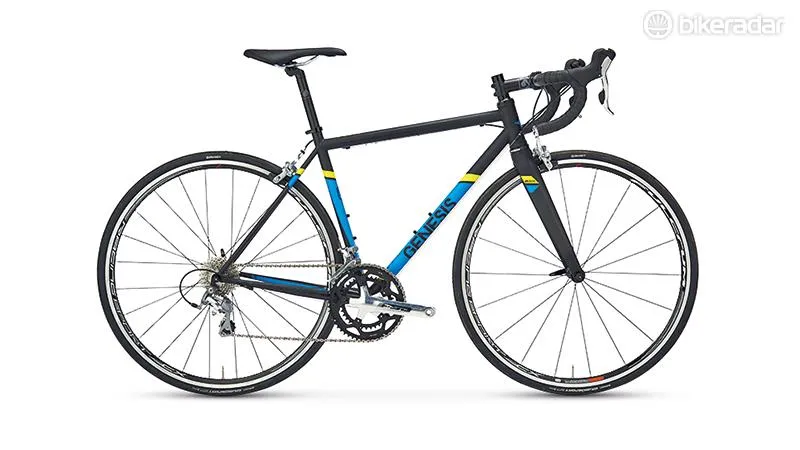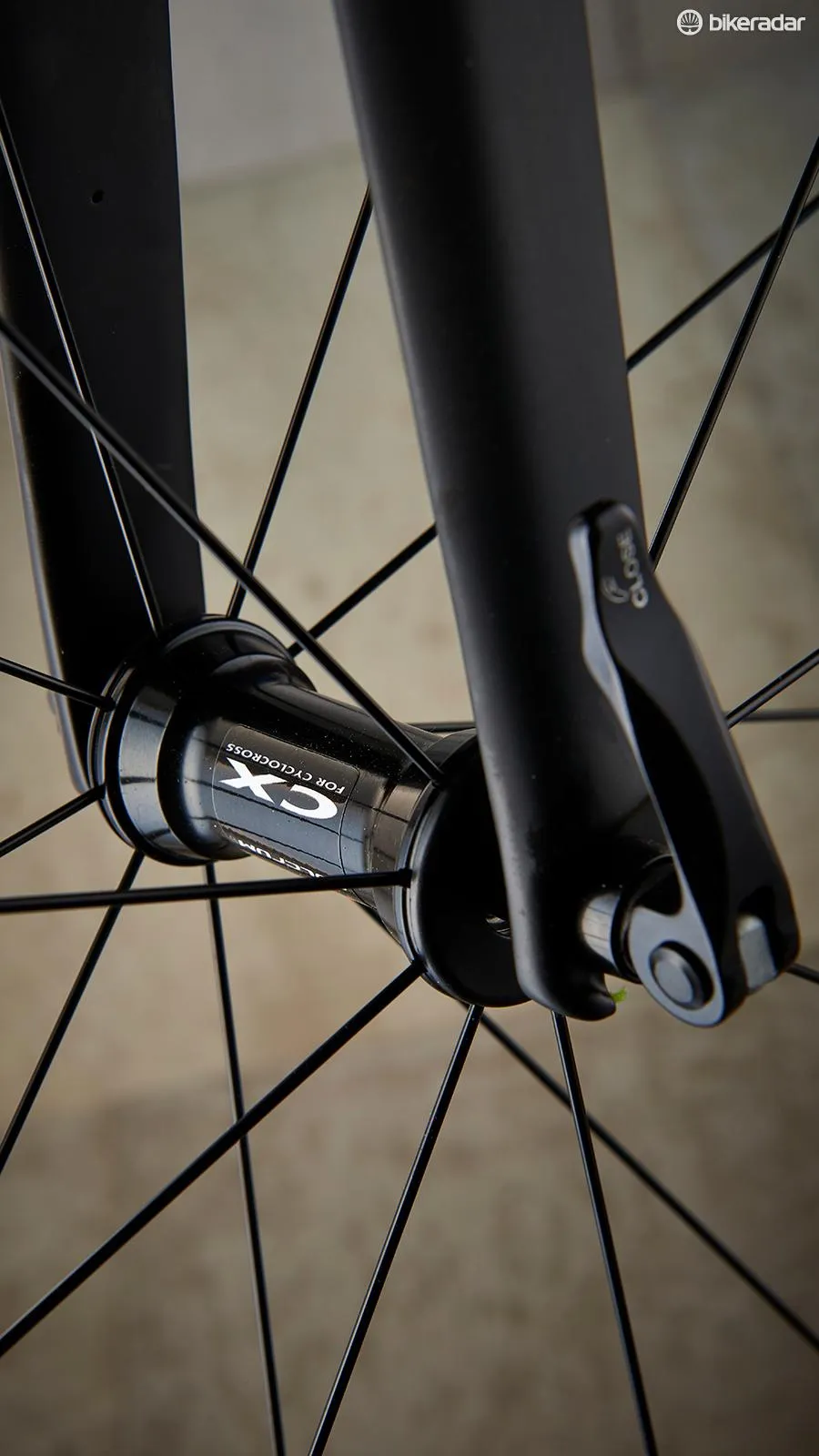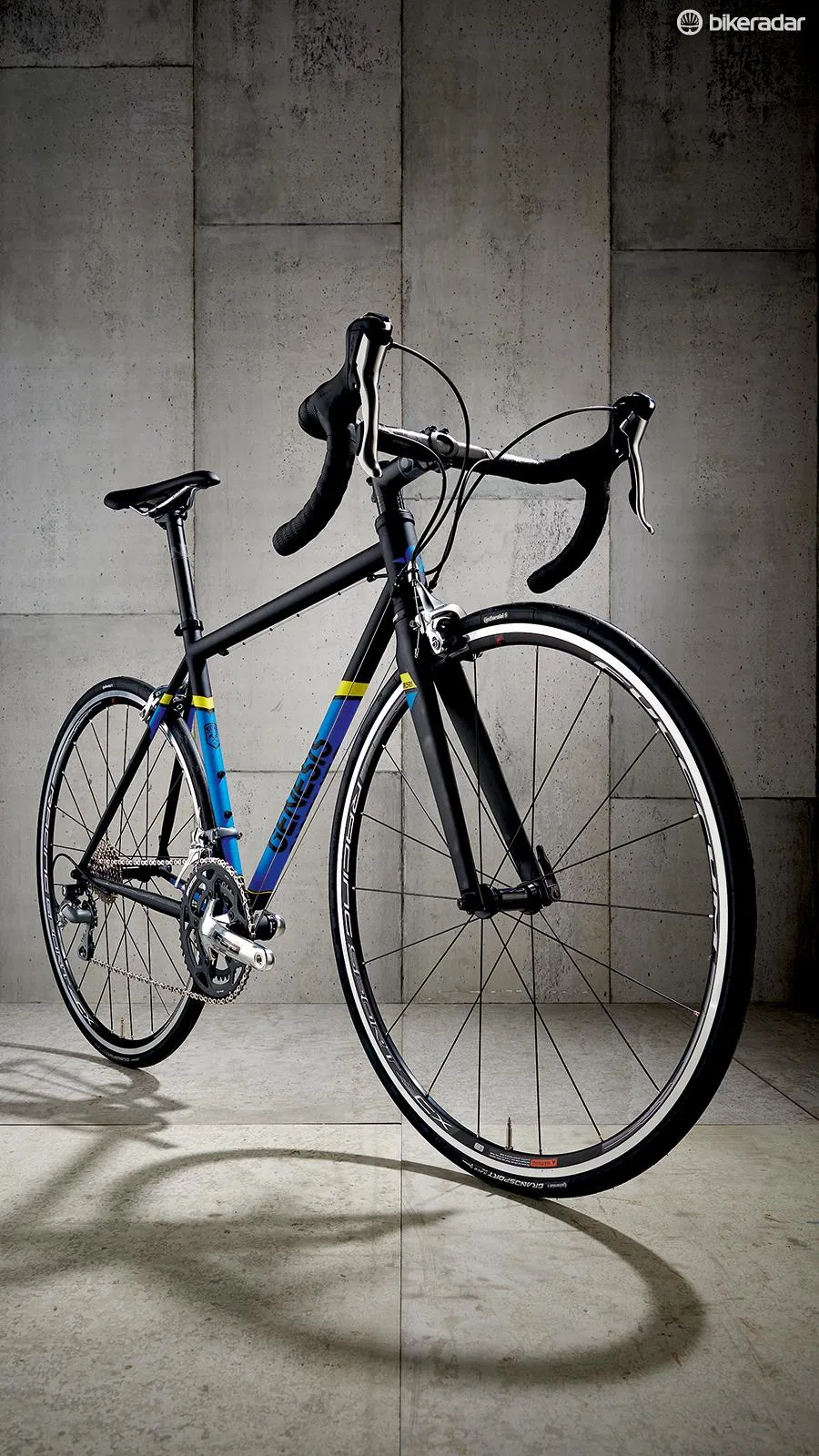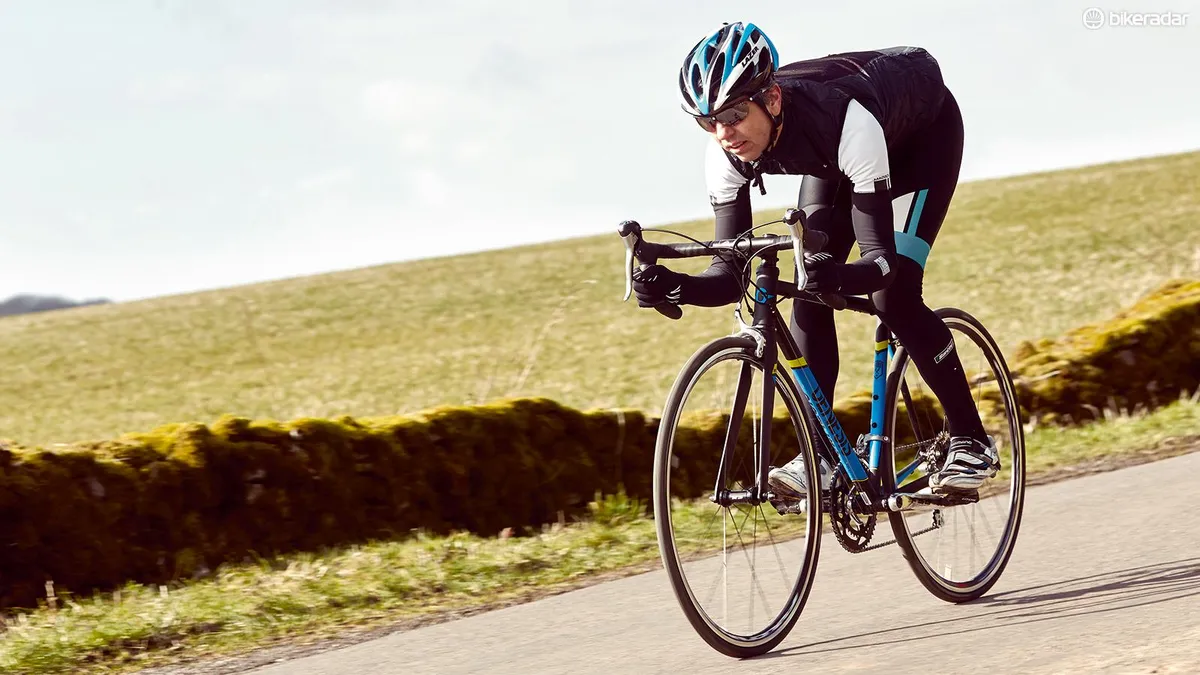The Volare is Genesis' all-out steel racer, the machine that the Madison-Genesis Pro Team thrashes around criteriums up and down the UK. The bike is produced in four different tubesets that are, in descending order of price: Reynolds 953 stainless, 853, 725 and the 'Mjölnir' (the name of Thor's hammer) chromoly used for the Volare 10, the cheapest model in the line-up.
- Highs: Looks, rounded performance, smartly specced wheels
- Lows: Weight; ugly chainset, cheaper groupset compared with other bikes at this price
- Buy if: You want a charming, racy steel machine and don't mind a little extra heft
Head down to your nearest purveyor of hipster-approved bicycles and artisanally-concocted coffee and you may overhear someone posit that 'steel is real', without a hint of irony. The thinking goes that carbon frames are mere disposable novelties; that aluminium is but a young pretender; and that steel is above all the connoisseur's choice, the timeless tipple of the gentleman with a taste for authenticity.
This is, of course, nonsense – broadbrush generalisations about the qualities of frame materials are as useless and ill-conceived as the national stereotypes some would project onto their bikes, for example that those built in Europe are inherently superior to those forged in the Far East. They aren't. Having said that, the Volare 10 is a pretty decent match for our preconceived notions about steel frames. The positive ones, that is...
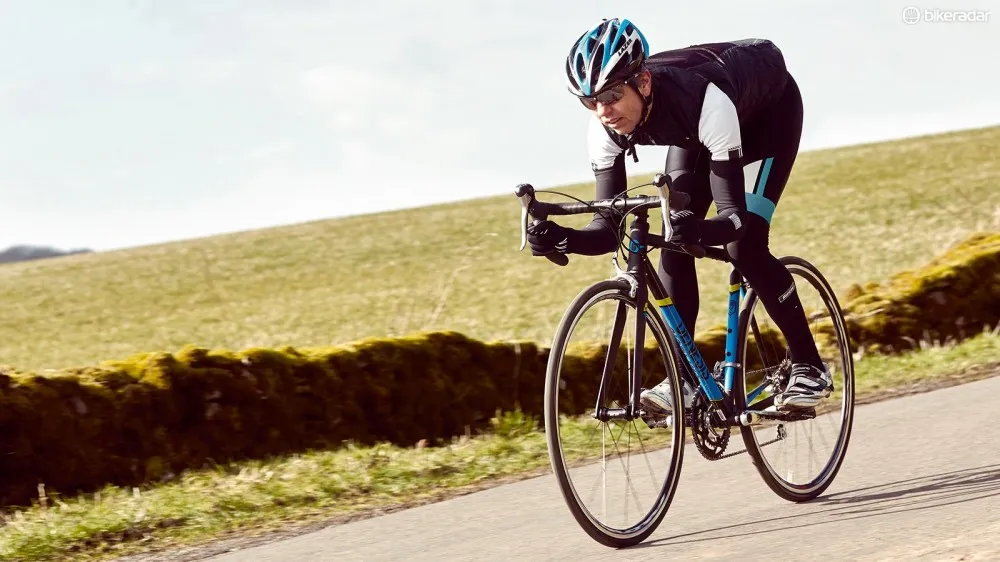
The entry-level Volare strikes an appealing balance between stiffness and compliance
Despite the brutal moniker, this ride isn't made out of pig iron – the tubes are double butted and the overall appearance of the frame is one of quiet quality, complemented by a pitch-perfect matt blue and black paint job with yellow highlights. Alongside fat-tubed alloy and carbon bikes it looks positively dainty, but there's no mistaking it for a vintage steel frame thanks to the oversized head tube and the immense external cup that houses the 1.5in lower headset bearing.
The spec is a mixed bag. We aren't going to criticise the choice of Shimano Tiagra 10-speed – it's a solid, dependable groupset, albeit one that's starting to look a little old fashioned alongside its slicker 11-speed brethren. It's a shame you don't get the matching chainset though; the FSA Omega unit in its place does the job, but it looks cheap and nasty, unfortunate on a bike that's rather elegant otherwise.
The real highlight is the Fulcrum Racing Sport CX wheels. They aren't exactly light, but their extra bearing seals, silky hubs and 21mm width put them a cut above the budget kit most comparable bikes get. Basic but serviceable alloy finishing kit rounds things out, with the only irritant being the stepped cradle on the saddle clamp that makes fine tilt adjustments impossible, and an excessively squishy saddle.
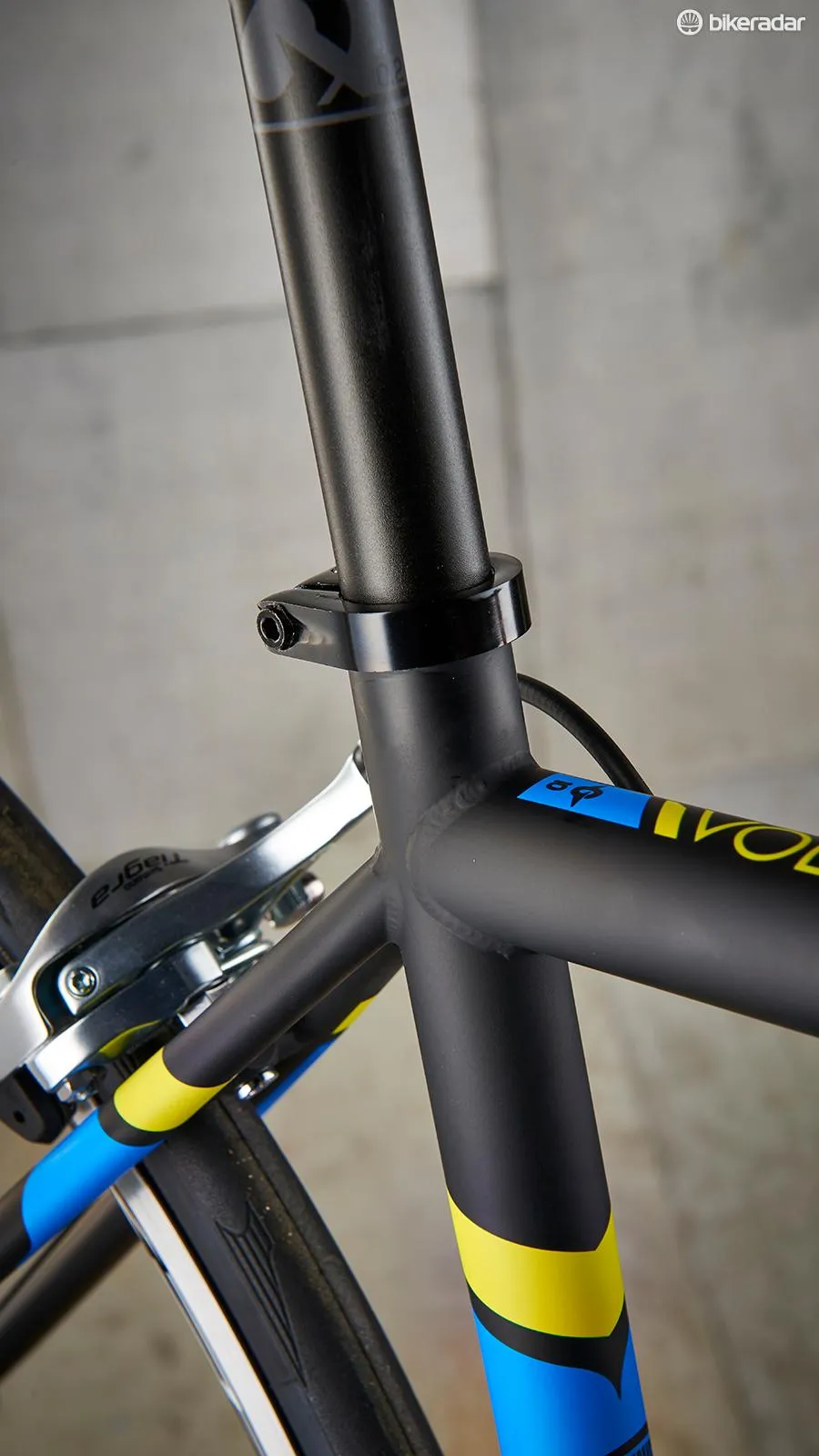
Slim, quality steel tubes sport a lovely paint job
On paper, the Volare 10 is underwhelming, weighing circa 10kg and offering a modest spec compared with the competition. On the road however, it makes a certain kind of sense, with a ride quality that's firm but composed, and that doesn't leave you longing for a carbon seatpost. Forget what you've heard down the pub about flexy steel frames, they can be every bit as stiff and raceworthy as those made from other materials. The Volare strikes a nice balance – you feel in touch with the road, but not punished by it, and despite the mediocre cranks, the power transfer is there when you need it.
A steel bike is a heart-not-head choice for many of us, and the Genesis isn't a screaming bargain. The reality is though, we like it. It puts a smile on our faces when we ride it, and amongst a horde of largely undifferentiated alloy frames at this price point, it's appealingly different.

